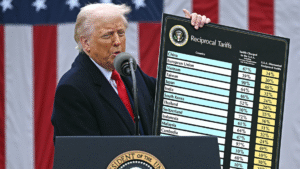https://theworldfinancialforum.com/participate/
BJP

BJP:As India-US relations appear to be veering towards diplomatic friction following US President Donald Trump’s threat over India’s oil trade with Russia and New Delhi’s fitting response, BJP leader Baijayant Panda invoked late American diplomat Henry Kissinger to underscore the situation.
He shared Kissinger’s quote on X — “To be an enemy of America can be dangerous, but to be a friend is fatal” — calling it a “timeless statement” as India navigates Trump’s tariff threats.
As the US administration exerts pressure on countries to halt deals with Russia in a bid to choke its revenues amid the war in Ukraine, President Donald Trump has called on India to stop purchasing Russian oil. India remains the largest buyer of seaborne Russian crude.
Trump even accused India of financing Russia’s war in Ukraine through its oil trade, and dismissed both the Indian and Russian economies as “dead economies” in multiple statements and social media posts over the past few weeks. The US has imposed a 25 per cent tariff on Indian imports and warned of steep penalties and additional duties if trade with Moscow continues.
“India is not only buying massive amounts of Russian Oil, they are then, for much of the Oil purchased, selling it on the Open Market for big profits. They don’t care how many people in Ukraine are being killed by the Russian War Machine. Because of this, I will be substantially raising the Tariff paid by India to the USA,” the US President said in his latest social media post.
Within hours of Trump’s remarks, India issued an unusually sharp rebuttal, slamming the US and the European Union for their ‘unjustified and unreasonable’ criticism of its Russian oil imports. Firmly rejecting the charges, New Delhi called out the double standards, pointing out that both the US and the EU continue to maintain trade ties with Moscow.
“India’s imports are meant to ensure predictable and affordable energy costs to the Indian consumer. They are a necessity compelled by global market situation. However, it is revealing that the very nations criticising India are themselves indulging in trade with Russia. Unlike our case, such trade is not even a vital national compulsion,” the government said in a statement.
It added, “…the targeting of India is unjustified and unreasonable. Like any major economy, India will take all necessary measures to safeguard its national interests and economic security”.
India and the US were negotiating a trade agreement, but the discussions reportedly hit a roadblock due to India’s firm stance on not opening up its agriculture and dairy markets, among other concerns.
In a striking blend of diplomacy and political messaging, a senior BJP leader recently invoked the words of former US Secretary of State Henry Kissinger in response to US President Donald Trump’s fresh 20% tariff threats against India. The statement, delivered during a public event, reflects both concern and confidence as India navigates a rapidly shifting global trade environment.
Trump’s remarks, which hinted at imposing steep tariffs on a range of Indian exports, have sparked debates among economists and policymakers about the potential impact on bilateral trade, valued at over $190 billion in 2024. Sectors such as textiles, IT services, and pharmaceuticals could feel the pressure if the tariffs materialize.
The BJP leader’s reference to Kissinger—known for his realpolitik approach to foreign affairs—was both symbolic and strategic. The quote, “To be an enemy of America can be dangerous, but to be a friend is fatal,” was used to underline the complexity of maintaining a strong yet independent foreign policy in dealings with the US. However, the leader was quick to clarify that India remains committed to a partnership based on “mutual respect, fairness, and long-term strategic cooperation.”
Economists suggest that while a 20% tariff could temporarily strain trade flows, it may also push India to accelerate diversification of export markets and strengthen domestic manufacturing under the “Make in India” initiative. There’s optimism that negotiations could lead to a middle ground, preventing the escalation into a trade war.
By invoking Kissinger, the BJP leader not only highlighted the geopolitical realities of international trade but also sent a message of resilience: India is prepared to protect its interests while keeping diplomatic doors open.
If managed wisely, this episode could become an example of India balancing assertiveness with diplomacy in an increasingly uncertain global economy.
– Ends
Tune In